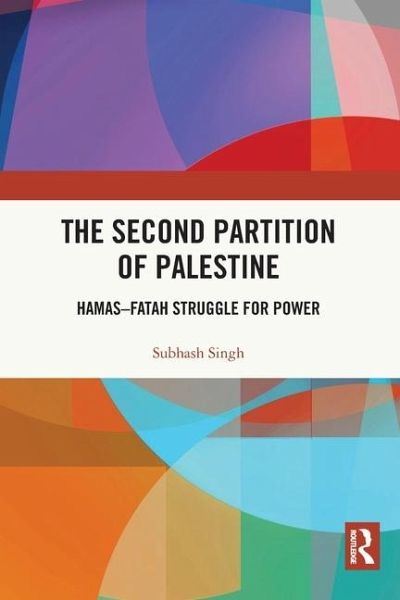
The Second Partition of Palestine
Hamas-Fatah Struggle for Power
Versandkostenfrei!
Versandfertig in 6-10 Tagen
45,99 €
inkl. MwSt.
Weitere Ausgaben:

PAYBACK Punkte
23 °P sammeln!
This book examines the factors and issues responsible for the intra-Palestinian conflict that has undermined the strength and vitality of the struggle for liberation against the state of Israel. It explores how the ideological incompatibility and competition for political primacy account for the Hamas-Fatah conflict, entailing the risk of partition of Palestine even before it takes shape as an independent, sovereign entity. It analyzes the developments since the signing of the September 1993 Oslo Accord and discusses themes such as the background of Palestinian politics; the role of Fatah; the...
This book examines the factors and issues responsible for the intra-Palestinian conflict that has undermined the strength and vitality of the struggle for liberation against the state of Israel. It explores how the ideological incompatibility and competition for political primacy account for the Hamas-Fatah conflict, entailing the risk of partition of Palestine even before it takes shape as an independent, sovereign entity. It analyzes the developments since the signing of the September 1993 Oslo Accord and discusses themes such as the background of Palestinian politics; the role of Fatah; the rise of Hamas as Fatah's political rival; the Hamas-Fatah struggle for power; and the role played by the international community, including by the US and the European Union. The study deals with the various facets of territorial and political challenges faced by the rival Palestinian actions; the failure of the reconciliation efforts by Egypt and Yemen; the stalled peace process in the West Bank and Gaza Strip; the emergence of the Islamic resistance movement and secular nationalist party; and the political and ideological shifts in Palestinian politics.
Comprehensive and topical, this book will be useful to scholars and researchers of West Asian studies, peace and conflict studies, politics and international relations, foreign policy, political studies, area studies and strategic and defence studies.
Comprehensive and topical, this book will be useful to scholars and researchers of West Asian studies, peace and conflict studies, politics and international relations, foreign policy, political studies, area studies and strategic and defence studies.














